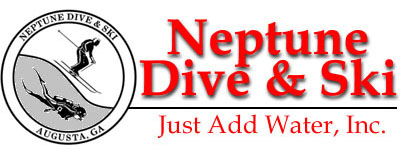SSI Diver Stress and Rescue
Course Objectives
On completion of this diving specialty course, you should be able to:
- List the 3 factors of stress that determine whether it is positive or negative
- Describe the fight-or-flight syndrome
- Understand the vulnerability of stress
- Describe the psycho-respiratory cycle
- State the physical and psychological causes of stress as they relate to diving
- Describe the environment- and equipment-related causes of stress
- Understand how proper training and skills can help in avoiding excess stress
- List the signs of stress during the three stages of a dive
- Understand how to avoid and manage stress during the three stages of a dive
- Understand the accident management process
- Describe common signs and symptoms of diving maladies
- List the first aid procedures for diving emergencies
- Provide “self-aid”
- Provide assistance to your buddy
- Perform a buddy rescue
- Perform an unconscious-diver rescue
- Understand how the environment, water movement, impairments and injuries, and hypothermia/cold water can complicate a rescue
Course Prerequisites
The recommended minimum age for participation is 15. Junior divers age 12-14 will be admitted at the discretion of the instructor after an interview.
You must have an active SSI Diver Training Record on file at the dive shop. If you don’t, one can be started for you. You must have a current SSI 1) Statement of Understanding, 2) Privacy Statement, 3) Medical History form, 4) Waiver and Release of Liability, and 5) Risk Awareness Verification (video 3). If you do not, please update them before the precounsel session.
Prior to the course, you should have proof of current certification to give CPR, use an AED, administer 100% oxygen, and deliver first aid. Your Stress and Rescue certification cannot be issued until you have completed this requirement. Neptune offers the SSI React Right program, which teaches the above from a scuba perspective. Persons with current certification in CPR, AED, O2, and first aid might nonetheless want to audit the React Right academic sessions, since they are scuba-specific. At the open water training dives for Diver Stress and Rescue, you will be expected to demonstrate these skills in a simulated rescue.
This is a physically and mentally strenuous, and challenging, advanced specialty course - often the final course before receiving SSI's Master Diver recognition, or going on to dive profesional-level training. The rescue skills require very good physical conditioning. For example, you will be expected to tow a diver from the airplane area to shore.
Students must have demonstration-quality basic entry-level Open Water Diver skills. This will be tested in the first pool session, and again in the open water. A list of required skills will be given at the precounsel session. Those who feel rusty on skills should take a refresher course before enrolling in Diver Stress and Rescue. SSI also has online skill refresher videos. Without exception, students must have mastered buoyancy control and be able to hover comfortably at various depths.
Divers reaching the Master Diver level should have their own equipment and know how to use it. Except for cylinders, rental equipment may not be used for pool or open water sessions without advance permission from the instructor.
Prospective students should have logged at least 45 dives under various conditions of depth and visibility. Students must be familiar and comfortable with the East Dam at Lake Thurmond dive site; if not, you will need to arrange for familiarization dives. Students should have Advanced Open Water recognition with Navigation certification and (ideally) Night and Limited Visibility, Boat Diving, and Deep Diving certifications. Nitrox and Science of Diving certifications are also desirable.
Before you can register for the course, you must come by Neptune for a precounsel session that will provide an overview of prerequisites, required equipment, and training.
The academic portion of the course is online, with review questions. You must complete the online portion before coming to the first academic session, which will provide a focused (but not complete) review and discussion of the online materials. There is also a written final examination.
Training (class, pool, and training dives) is normally done with a minimum of 2 and a maximum of 4 students per instructor. If you miss a session you will be allowed to join the next class.
Course Outcomes
- On successful completion of the course, you will have been introduced to the stress/rescue knowledge and skills expected of a dive professional, and you will be prepared to receive the coveted SSI Master Diver recognition once you have completed the other prerequisites.
How the Course Works
- The academic portion of course, including your at-home study of the online Diver Stress and Rescue training materials, the precounsel session, and 3 class sessions should take about 12-16 hours. There are at least 3 pool sessions, divided over 3 different nights.
- We expect you to study the online rescue skill videos very carefully.
- You'll need to bring your personal scuba equipment to the dive shop before the first class/pool session, so that the dive shop can inspect and disinfect your equipment. Your regulator and BC must have been serviced according to the manufacturer's instructions.
- Plan on the class and pool sessions going from 6pm to 10pm, possibly longer.
- Don't sign up for the class if you don't have the time for online study, or if you have to miss a session.
- When you sign up, you’ll be given access to the online training materials at the SSI website. If you don't already have a DAN pocket mask, you will need to obtain one.
- Please complete all sections of the online course, including the online review questions, prior to the first class session. Set aside several hours to do this – it’s a lot of material.
- Each class session will begin with a pre-test and then a review of the academic sections of the course.
- At the first pool session, your basic Open Water Diver skills will be tested. We expect them to be near-perfect (demonstration-quality) on the first night, without a review. You must have excellent neutral buoyancy. If not, you will be allowed to join the next class, but not permitted to attend the subsequent pool sessions, or the open water training dives. So, doing a skill refresher might be worthwhile. Skills will be tested again in the open water sessions.
- There's a written final exam, which you have to pass with a minimum score of 80%.
- At least 3 open water training dives are required. They will be at the East Dam area at Clark's Hill Lake (Lake Strom Thurmond). You must already be familiar comfortable with this area (particularly the plane and the 3 rocks areas) before taking this course. If not, you will need to arrange for familiarization dives.
- While it might be possible to complete the open water training dives in one day, plan on returning the next day.


